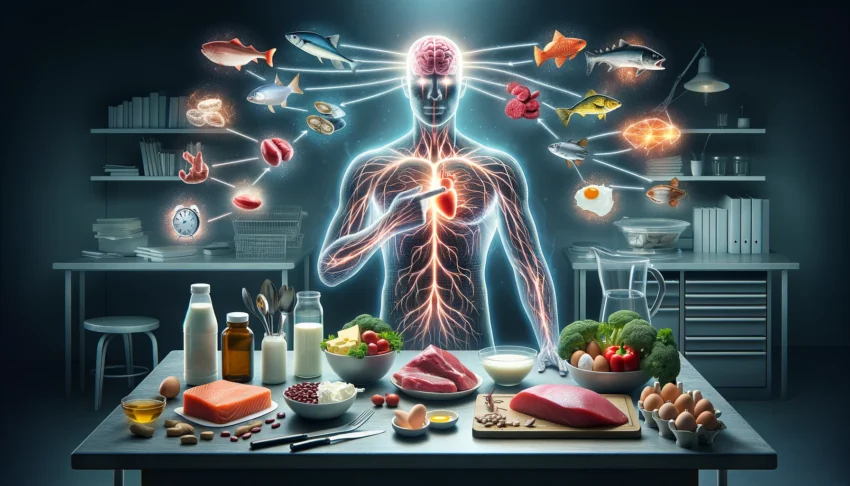Vitamin B12, also known as cobalamin, is a crucial water-soluble vitamin that plays a vital role in brain health, nerve tissue health, and the production of red blood cells. It is one of the most complex vitamins and the only one that contains a metal ion, cobalt. This article delves deep into the importance of vitamin B12, its dietary sources, signs of deficiency, and recommendations for supplementation.
The Role of Vitamin B12 in the Body
Vitamin B12 is essential for several critical physiological processes:
- DNA Synthesis: It is crucial for the synthesis of DNA during cell division.
- Red Blood Cell Formation: B12 is involved in the production of red blood cells and helps prevent a type of anemia called megaloblastic anemia that makes people tired and weak.
- Nerve Function: It is essential for the maintenance of myelin, the protective sheath around nerves, which is crucial for the proper functioning of the nervous system.
Sources of Vitamin B12
Vitamin B12 is naturally found in significant amounts only in animal products, including:
- Meat and Poultry: Beef, liver, and chicken.
- Fish: Sardines, tuna, salmon, and cod.
- Dairy Products: Milk, cheese, and yogurt.
- Eggs: Particularly in the yolks.
For vegetarians or vegans, obtaining sufficient vitamin B12 can be challenging as plant-based foods do not contain vitamin B12 unless they are fortified. Such individuals need to look for fortified foods like plant milks, soy products, breakfast cereals, and nutritional yeast.
Signs of Vitamin B12 Deficiency
Vitamin B12 deficiency can lead to several health issues, including:
- Fatigue and Weakness: Due to decreased red blood cell production.
- Nerve Damage: Which may result in numbness and tingling in the hands and feet.
- Memory Loss: Particularly in elderly individuals.
- Mood Changes: Such as depression or irritability.
- Digestive Problems: Like nausea, diarrhea, or cramping.
Risk factors for B12 deficiency include vegetarian or vegan diets, gastric bypass surgery, certain genetic mutations, elderly age, and autoimmune conditions like pernicious anemia.
Recommendations for Vitamin B12 Supplementation
1. Dosage and Forms of Supplements
The recommended dietary allowances (RDAs) for vitamin B12 vary by age, lifestyle, and physiological conditions:
- Adults: 2.4 micrograms (mcg) daily.
- Pregnant Women: 2.6 mcg daily.
- Breastfeeding Women: 2.8 mcg daily.
Supplements come in several forms:
- Cyanocobalamin: A synthetic form of B12 that is most commonly used in supplements and fortified foods. It is inexpensive and has excellent stability.
- Methylcobalamin and Adenosylcobalamin: These are natural forms that are better absorbed and may be preferred for those with specific genetic mutations affecting B12 metabolism.
2. Route of Administration
- Oral Supplements: Effective for most people and easiest to take.
- Sublingual Tablets or Lozenges: May offer better absorption for some people.
- Injections: Typically reserved for those with severe deficiency, malabsorption issues, or pernicious anemia.
3. Combining with Other Supplements
It is often recommended to take vitamin B12 with other B vitamins, especially B6 and folate, as they work together to lower blood levels of homocysteine, potentially reducing the risk of heart disease and stroke. Additionally, ensuring adequate levels of magnesium and omega-3 fatty acids can enhance the effectiveness of B12 in supporting neurological function and mood stabilization.
Conclusion
Vitamin B12 is essential for numerous aspects of health, from energy production to brain function and nerve health. Individuals at risk of deficiency, particularly those on plant-based diets, older adults, and those with absorption issues, should consider supplementation. Always consult with a healthcare provider to determine the appropriate dosage and form of vitamin B12 supplementation, tailored to your specific health needs.

